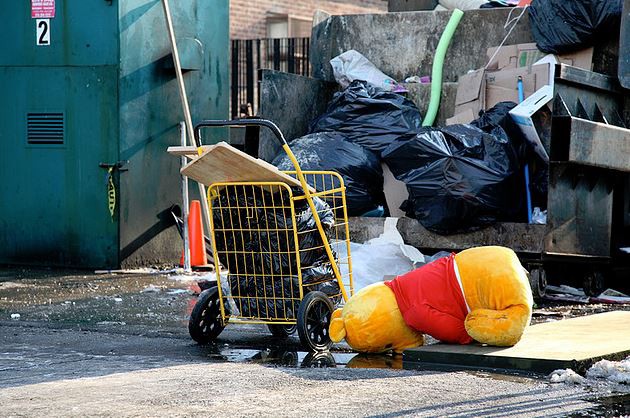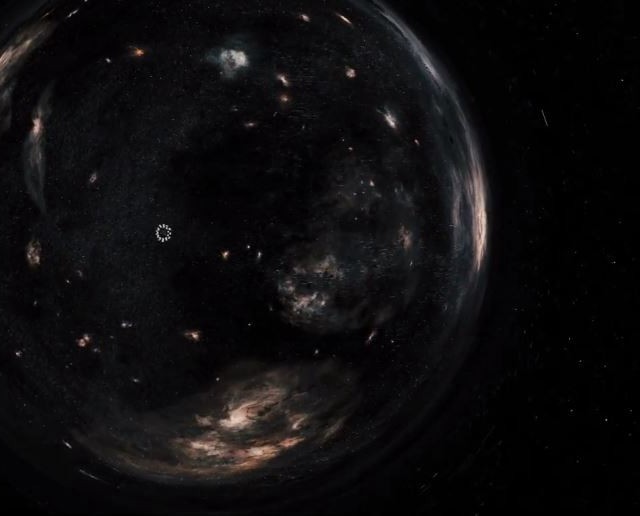The History Of Maud Newton
“Random House will publish writer and critic Maud Newton’s first book, an examination of her obsession with genealogy and her own colorful family history, along with the science and superstition of ancestry in the culture at large. Newton’s essay, ‘America’s Ancestry Craze,’ is the cover story for the current issue of Harper’s magazine. This interdisciplinary study will draw on memoir, reporting, cultural criticism, scientific and anthropological research to understand the fear and fascination behind genealogy, and why it has become the second most popular hobby in the United States. Newton began blogging about books and culture in 2002; within a few years her site was one of the most widely praised and quoted in the industry, and she began writing for the New York Times Magazine, the New York Times Book Review, the Washington Post, the Los Angeles Times, and NPR, among others. Random House senior editor Andrea Walker pre-empted North American rights from Julie Barer at Barer Literary.”
— ! Also, !! and !!! Plus a whole lot of !!!! !!!!!
A Government Official at the Tap of a Button
Testimony from Ashwini Chhabra, Deputy Commissioner of Policy & Planning at NYC Taxi & Limousine Commission, in 2012, on the question of hailing taxicabs with apps like Uber:
“It is not the rightful function of government to protect one segment of an industry from competition from another segment. So long as passengers win and the industry over all wins, our goal to be to encourage innovation and forward movement.”
So it will not surprise you to learn that he is becoming Uber’s first head of policy development and community engagement. I’m sure someone told him, in a sing-songy voice “Why reg-u-late when you can inn-o-vate? Also here is a large sack of money, woven from the hair of the world’s last unicorn.”
The New Internet Gods Have No Mercy

The internet is vast and wild and unknowable and full of potential, unless you are a website. If you are a website, you depend on traffic. And if you depend on traffic, you know that it comes from just a few different places. Facebook is a big one, and for many sites the biggest. Pinterest is enormous, staggeringly so, for sites that overlap with Pinterest’s audience. LinkedIn sends a lot of people if you write about business or self-help; Twitter sends a very modest and modestly valuable stream of people to stories about the news. In other words, in 2014, normal people read the internet mostly on their phones, usually through apps. The only honest way to assess your website is to imagine it with fat blue bars above and below your words.
From the captive publisher’s perspective, Google was the Facebook of five to ten years ago. Some publishers learned how to game it and reaped great rewards. Others simply kept on doing what they were doing and were rewarded anyway: Google, in its attempt to “organize the world’s information,” deemed their information worth organizing. This is what happened to MetaFilter, one of the great online communities of the 2000s. Over the years, the site’s “Ask MetaFilter” section accumulated a lot of questions and answers that happened to be similar to questions Google users were asking. This became a major contributor to Metafilter’s traffic, and remained so for years. Until recently:
While MetaFilter approaches 15 years of being alive and kicking, the overall website saw steady growth for the first 13 of those years. A year and a half ago, we woke up one day to see a 40% decrease in revenue and traffic to Ask MetaFilter, likely the result of ongoing Google index updates. We scoured the web and took advice of reducing ads in the hopes traffic would improve but it never really did, staying steady for several months and then periodically decreasing by smaller amounts over time.
Google updates its index all the time, ostensibly in an effort to kill off spammy how-to sites and content farms. MetaFilter isn’t perfect but it’s neither of those things, and now it has to lay off some of its staff. MetaFilter enjoyed Google’s traffic but didn’t ask for it, and now that traffic is gone.
Metafilter came from two or three internets ago, when a website’s core audience — people showing up there every day or every week, directly — was its main source of visitors. Google might bless a site with new visitors or take them away. Either way, it was still possible for a site’s fundamentals to be strong, independent of extremely large outside referrers. What’s so disconcerting now is that the new sources of readership, the apps and sites people check every day and which lead people to new posts and stories, make up a majority of total readership, and they’re utterly unpredictable (they’re also bigger, always bigger, every new internet is bigger). People still visit sites directly, but less. Sites still link to one another, but with diminishing results. A site that doesn’t care about Facebook will nonetheless come to depend on Facebook, and if Facebook changes how Newsfeed works, or how its app works, a large fraction of total traffic could appear or disappear very quickly.
Of course a website’s fortunes can change overnight. That these fortunes are tied to the whims of a very small group of very large companies, whose interests are only somewhat aligned with those of publishers, however, is sort of new. The publishing opportunity may be bigger today than it’s ever been but the publisher’s role is less glamorous: When did the best sites on the internet, giant and small alike, become anonymous subcontractors to tech companies that operate on entirely different scales? This is new psychological territory, working for publishers within publishers within publishers. The ones at the top barely know you exist! Anyway, internet people, remember this day in five years: It could happen to you, whether you asked for it or not.
New York City, May 18, 2014

★★★★ The dull brown glazed bricks of the subway wall gave in to the force of the day and served as mirrors, lighting up both sides of the stairway. Up in the sun again, from the eastbound 7, the oncoming Manhattan train came shining around the curve and the muted 5 Pointz graffiti glowed in pastel tones through the whitewash. “So many taxis,” the two-year-old said, staring down at a parking lot ablaze in orange-yellow. Glass in luxury condominium buildings showed its ripples; stains and faded markings covered the wide Queensian expanses of concrete. On went the tagged ductwork, a sagging ridgeline, plywood — and then the treetops at train level, lush and abundant, or the train at bird level through the treetops. People and the breeze were both flowing freely on Roosevelt Avenue. The daylight and the chandeliered cavernousness of the mall’s dim sum hall couldn’t quite reconcile with one another, as the space filled up entirely from wall to wall. The Flushing sky was clear, but as the train headed back out of the treetops and through the TV dishes, clouds were gathered close together over Manhattan. Some of the afternoon was almost gray, and some was a sprawling array of blue and white to lie back and stare at. By dinner, it had all cleared out, so the blinds had to come partway down. Light shone over the rugged terrain of a crumb-topped slice of pie. Outside, a clean wind was blowing from the evenly pink west. A gull crooked its wings and steered into it. In the grocery store, a sparrow was singing, on top of ducts painted evening blue.
How to Beat the Whiskey Shortage

Are you a casual fan of distilled spirits that have been placed into a large barrel and left to sit in a warehouse for years, possibly many of them, so that over time, the wood transforms the harsh, clear liquid into something that is sort of brown and tastes mellower and rounder and deliciouser and expensiver? Are you therefore afraid of the whiskey shortage that the major whiskey companies are warning you will mean higher prices and empty shelves and unchecked sobriety, so buy now, buy all you can, before it’s all gone?
Drink rum instead. You can buy some old-ass rum, which, after being distilled from molasses or sugar cane, has sat around in barrels for long periods of time, for relatively small sums of money: El Dorado 15 is, as you might expect, made with a blend of rums that have sat in a barrel for at least fifteen years. Is it slightly sweet and rounded with a “full nose packed with dark coffee, candied orange, almonds, dark chocolate, pepper and rich vanilla.” It is only thirty-six dollars. Barbancourt 15 is kind of soft and woody and fruity and other things you might say about a bourbon, but instead of corn it’s like molasses. It’s about forty bucks. Ron Zacapa 23, which is a blend of rums between six and twenty three years old, is probably the first rum that made a lot of people go, “Oh, rum isn’t just that stuff that goes in a daiquiri or a mojito or that made me vomit pieces of my intestines into a urinal while I was wearing a silver crown.” Here are some tasting notes for it: “Nose full or apricots, citrus fruits, vanilla, cocoa and bourbon.” It runs around forty to forty-five dollars. You could also buy some older, more expensive rum, for the same reasons you might buy an older, expensiver whiskey, to show have you have t a s t e, like the Dictador 20 Year Old for sixty bucks, or El Dorado 21 Year Old for ninetyish dollars or a rare twenty-five-year-old rum from English Harbour for four hundred dollars.
(But, you say, whiskey — bourbon — is the most American of all spirits. It’s America in a Solo cup. It’s what this country was built on. This is incorrect. Our colonial working stiff forefathers, the non-rich ones, they drank rum — awful, rank, cheap rum. Whiskey didn’t really come around in the colonies until after rum, so you could even say it’s kind of a poseur?)
What should you do with this old-ass rum that has been sitting around in a barrel for a while? A lot of the same things you would do with a whiskey or other mature spirits: You can drink it neat or with an ice cube or as an old fashioned (an old fashioned is just a spirit, sugar, water, bitters and MAYBE a lemon peel, though you might want to use demerara sugar?) or in like a Manhattanish thing with sweet vermouth, probably Carpano Antica or Cocchi Vermouth di Torino. Drink it and stop worrying about the whiskey shortage, or that you won’t be displaying a sufficient level of sophistication in your liquor choices because when literally everybody else is talking about how much they loooove whiskey, you? You appreciate fine aged rum.
Photo by Far Enough
I Lost Control of My Fake Tweet
by Matthew J.X. Malady
People drop things on the Internet and run all the time. So we have to ask. In this edition, writer Patrick Mortensen tells us more about what it feels like to have some joke thing you put on Twitter go viral and then spend the next few weeks regretting it.
haha I made an autocorrect shortcut on my mom’s phone to replace dirty laundry with the text of Ulysses #lol #momfail pic.twitter.com/cc63FUb8m7
— Patrick M (@MrBikferd) April 25, 2014
Patrick! So what happened here?
A few Fridays ago, when I should have been focusing on something else, I tweeted a cobbled together fake text exchange that riffed on the idea of Young People messing with the phone settings of Old People (I am an old person, so I was trying to face my fears), specifically: adding wacky keyboard shortcuts.
This is a thing young people do, so watch out. (There is the girl who Internet-famously shortcutted “laundry” with “acid” on her mom’s phone; this is mostly what I was thinking of when I did this — how it was a cheap laugh and probably not even real, because I care about being real on the Internet? Which was why I was being fake on the Internet? I’m not sure anymore.) I chose Ulysses as the replacement text because it’s sort of a go-to “thing that’s long” but also has a fairly well known opening sentence and a pretty famous ending. But mostly the subtext of a lot of the tweets I like is: “Wouldn’t it be awful if someone said this?” and that’s really all I was going for.

As of this morning, my Ulysses tweet has been retweeted 7,000 times and has around 9,800 favorites. Also, some person posted (curated?) a screenshot of the tweet on Tumblr, and that has 54,000 notes. People really love it when moms are bad at technology, it turns out.
That seems like a best-case-scenario result for a joke tweet that you put some time into creating and producing, no? I mean, isn’t a massive response kind of what you were hoping for when you sat down and did this? What did you expect?
I had assumed people would understand that it was a joke, or, if not, at least see right away that it looked photoshopped based on some of the pixels and from seeing quite a few photoshopped things in their time. E.g., I didn’t bother to change the battery life from one screen to the next, although I did change the time by four hours. I imagined part of the joke being that you couldn’t even add a text shortcut that led to a result this long; it turns out you can, which kind of muddies the joke a bit.)
But, with regard to navigating the distance between the text versus subtext and/or recognizing the disingenuousness of either: nope.
The ersatz momfail wasn’t picked up by “the news,” but it was picked up by a few “news aggregators.” An Irish site had the headline: “Prankster Confuses his Mam,” which is a good headline. Put that on my tombstone I guess.
And also put that I felt gross about it: I guess jokes about jokes aren’t as transparently obvious once they appear divorced from their original context? It turns out? #LOL #Barthesfail. I for sure lost track of what my joke was even supposed to be somewhere over the first weekend, around the time I got an alert that my username was trending in the UK.
Lesson learned (if any)?
I don’t think it’s funny or interesting to try to convince people a fake thing is real, so as a preponderance of RTers and people saying “epic” to me overtook my mentions, I was a little bit at sea. For the first few weeks, I would look at my phone and think about the old times, when our love was new and it understood when to shut up with the Twitter notifications. I also am aware that there literally could not be anything less important than my fretting over a thing that will not even be a thing if I just wait a few more days. And, in fact, it’s mostly died down at this point: one or two notifications a day; my phone now mostly seems like a tired SNL character with a past-its-prime catchphrase. Just personally, though, a dark moment came when Michael McKean, who with at least one aspect of his career spent an extended period of time not breaking character, retweeted it, causing me to wonder not for the first time which circle of irony we had reached.
So, anyone who happened to see this and thought this was real: super sorry, this must feel like Horse eBooks all over again. But also, like, don’t prank your mom? Or encourage the prankings of other moms. Even if your mom is a bitter old dean at a college in a movie from the eighties. She’s still your mom.
There was a guy who replied to me saying he couldn’t figure out what was more pathetic: that I invested the energy into tricking my mother, or that my mother still did my laundry, and at first I was like “hahaha ok dick,” but then it occurred to me: This guy’s on the side of the moms! I love moms (I am married to one). I hope that guy did a screenshot of his reply and then emailed it to his mom for Mother’s Day, unless his mom is bad at technology like she probably totally is.
Just one more thing.
Here are my thoughts from a few weeks’ worth of Twitter making my stomach hurt:
(1) Being mean to people is gross.
(2) I have some thoughts about making the notification settings in the Twitter app more granular
(3) It became non-consensual by the end
(4) Let’s all sign up our mothers to do Codeacademy or something so they stop falling for pranks, even imaginary ones. I mean it, this is not a “joke,” let’s help the moms, I mean it not joking, I mean really like mad I mean it I mean it I mean It.
Matthew J.X. Malady is a writer and editor in New York.
Jill Abramson at Wake Forest: The Student Perspective
Yes. This. RT @ravisomaiya: I am always so impressed by this generation of 20-somethings. So confident and articulate.
— Felix Salmon (@felixsalmon) May 19, 2014
Jill Abramson gave a commencement speech at Wake Forest today, her first public statement since her firing. Ravi Somaiya was there to cover the event for the Times:
Jill Abramson, the former executive editor of The New York Times, made her first public appearance since her abrupt dismissal last week, speaking about resilience in a long-scheduled commencement address on Monday at Wake Forest University.
After telling the students she had been fired, Ms. Abramson said her father had always emphasized that it was as important to handle setbacks as to embrace success. “I’m talking to anyone who’s been dumped,” she said.
After acknowledging the small media circus that followed her all the way to Winston-Salem, she did her best to focus on the task at hand: Welcoming graduating students into the real world, and sharing her considerable experience in a way that might give them guidance, or at least something to think about. So what are they thinking about? I am curious what these fresh young minds, ignorant of the biases of their parents’ generation, make of all this. Let’s check Yik Yak, the anonymous bulletin board app that’s wildly popular in high schools and Southern universities, including Wake Forest.

Must just be a few trolls. Not all students!

Hmm. It’s graduation day, emotions are running high. We all say things we don’t mean.

Well, I guess that’s what grad school is for?
An Olfactory Guide to New York City

A “smell scientist” enjoys a warm morning in New York City:
The savor of a toasted bagel had traveled on a breeze.
“It’s windy, we don’t have to move around. The smells come to us,” she said.
“A few minutes ago, I smelled the East River,” she said. The telltale scent: “briny, salty, fishy.”
Steam rising from underground brought “a really powdery, moist, kind of sweet smell.”
“It’s like the world’s biggest humidifier.”
Walking through Grand Central, she picked up on pastries and coffee, after-shave and toothpaste.
There was also “disinfectant from the trains,” “brown-black shoe polish,” and “cheap air freshener from a Town Car” coming from one man’s suit.
I used to be reflexively skeptical of outright claims of conspiracy, but in a post-Snowden, post-Cronut world, I find myself more sensitive to sinister motivations, and I have to wonder: Where is this coming from? What agenda does this serve? Who is this smell scientist working for? Is this… a stroke? I have smelled the East River’s “telltale scent.” I have smelled street steam. I have stood outside bagel shops without picking up the faintest scent of bread; I buy coffee every morning and don’t smell it until it’s in my stupid mouth. On the short walk-and-ride to the office I typically smell six distinct, real things: the raw, emetic mixture of meat and spices hitting a halal cart flat-top; ripening, stagnant puddle water; bus exhaust; body odor, sour and perfumed; trees; and depending on the morning and the time, trash. If I take an alternative subway route, I may also walk by a fish market, which smells like magnolias and freshly cut grass. (Photo from Shootingbrooklyn)
New World Seamless Order
Think of how much easier it will be to purchase Television Content and Internet Service when just one company provides it all! You could think grumpy thoughts about this — the emergence of two mega telecom companies in Comcast-Time Warner and AT&T-DirecTV; — or just roooolllll with it, like a breeze over oceans of money.
Let Us Welcome the Season of Cosmic Terror

There are not that many coming attractions that people actually seem to want to see; there are fewer that feel like they are defining some kind of moment in cinema. But there does seem to be one small weird thing going in trailers: The adults are thinking about the stars, and the teens are too. Everyone is suddenly terrified of infinity and it’s making them all fall in love.
Here is the new trailer for Christopher Nolan’s Interstellar:
It’s a movie in which characters say things like this. (And a climate in which these lines are deemed appropriate to promote a film).
Murphy’s law doesn’t mean that something bad will happen. It means that whatever can happen will happen.
We must confront the reality that nothing in our solar system can save us.
We’re not meant to save the world, we’re meant to leave it.
We much reach far beyond our own lifespans. We must think not as individuals, but as a species.
We must confront the reality of interstellar travel.
This is a trailer heightened not by the prospect of death or destruction but by the knowledge that the universe does not care what happens to us either way. The apocalypse movie boom is over. Infinity is the villain now!
And now here’s the trailer for June’s The Fault In Our Stars, based on John Green’s hugely successful YA series:
Some quotes, teen-to-teen:
I am in love with you Hazel Grace, and I know that love is just a shout into the void and that oblivion is inevitable, and I am in love with you.
You gave me a forever within the numbered days, and I can’t tell you how thankful I am for our little infinity.
The “forevers” in this young love story aren’t romantic or Godly or poetic, but pop-cosmological. Infinity is a reason to fall in a love and also a definition of love! It’s not parents or society that’s keeping lovers apart and therefore bringing them together, but the “void.” Eternity: Drab. Infinity: Fab. It’s all very late-70s Sagan and SETI and I WANT TO BELIEVE. Maybe that’s it, the return of a mood: In 1980, when Cosmos was published, Arthur C. Clarke’s The Fountains of Paradise won the Hugo and gas was expensive and the end of the world was nigh; getting to space seemed important because there were probably other things out there for us. In 2014, energy is a sore subject and environmental doom feels imminent; getting to space is something we must do to escape, even though we know we probably won’t find anything at all. It also feels significant that the old Cosmos show was fun and entrancing and the new one is smug and awe-deadening. No? Eh. FRIDAY.
